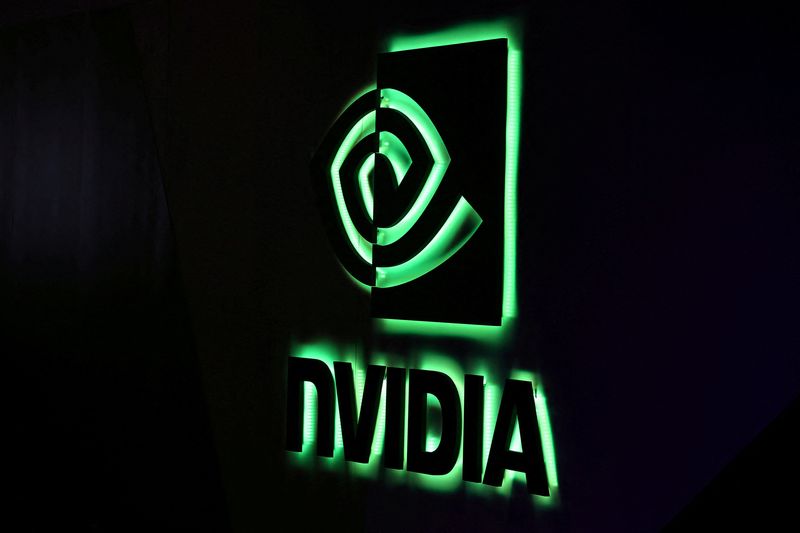By John Kruzel
WASHINGTON (Reuters) – The U.S. Supreme Court is set to consider bids by two tech giants – Meta’s Facebook (NASDAQ:META) and Nvidia (NASDAQ:NVDA) – to fend off federal securities fraud lawsuits in separate cases that could make it harder for private litigants to hold companies to account.
After a trio of Supreme Court rulings in June that weakened federal regulators – including the Securities and Exchange Commission that polices securities fraud – the justices may now be poised to rein in the power of private plaintiffs to enforce federal rules aimed at punishing corporate misconduct.
Andrew Feller, a former SEC lawyer now in private practice, said the Supreme Court’s recent track record of handing down business-friendly decisions that narrowed the authority of federal regulators suggests that Facebook and Nvidia may similarly find “a receptive audience” before the justices.
The Supreme Court has a 6-3 conservative majority.
“I think business interests will continue their recent pattern of aggressively challenging rules intended to hold them accountable, including by challenging the remaining private rights of action,” Feller said.
A private right of action refers to the ability of a private person or group to sue for an alleged harm.
Social media platform Facebook and artificial intelligence chipmaker Nvidia appealed to the Supreme Court after the San Francisco-based 9th U.S. Circuit Court of Appeals allowed separate class action securities fraud lawsuits to proceed against them.
The Supreme Court on Wednesday is due to hear arguments in Facebook’s bid to dismiss a suit accusing the company of misleading investors in violation of the Securities Exchange Act, a 1934 federal law that requires publicly traded companies to disclose their business risks.
The plaintiffs, a group of Facebook investors led by Amalgamated Bank (NASDAQ:AMAL), accused the company in a 2018 class action of withholding information from investors about a 2015 data breach involving British political consulting firm Cambridge Analytica that affected more than 30 million Facebook users.
The suit arose after Facebook’s stock fell following 2018 media reports that Cambridge Analytica had used improperly harvested Facebook user data in connection with Donald Trump’s successful presidential campaign in 2016. The suit seeks unspecified monetary damages in part to recoup the lost value of the Facebook stock held by the investors.
At issue is whether Facebook broke the law when it failed to detail the prior data breach in subsequent business-risk disclosures, and instead portrayed the risk of such incidents as purely hypothetical.
Facebook in its Supreme Court filing argued, among other things, that it was not required to state that its warned-of risk had already materialized because “a reasonable investor would understand (risk disclosures) to be forward-looking and probabilistic in nature.”
The SEC in 2019 brought an enforcement action against Facebook over the matter, which the company settled for $100 million. Facebook paid a separate $5 billion penalty to the U.S. Federal Trade Commission over the Cambridge Analytica issue.
Michael Perino, a professor at St. John’s University School of Law in New York, described private rights of action as “a necessary supplement” to public enforcement efforts.
“The SEC is arguably under-resourced given the broad scope of its responsibilities,” Perino said. “Securities class action lawsuits effectively deputize private attorneys to bring actions on behalf of aggrieved investors.”
NVIDIA CRYPTO-RELATED PURCHASES
The Supreme Court on Nov. 13 is due to hear arguments in Nvidia’s bid to scuttle a securities class action accusing the Santa Clara, California-based company of misleading investors about how much of its sales went to the volatile cryptocurrency industry.
The 2018 suit, led by the Stockholm-based investment management firm E. Ohman J:or Fonder AB, accused Nvidia of violating the Securities Exchange Act by making statements in 2017 and 2018 that falsely downplayed how much of the company’s revenue growth came from crypto-related purchases.
Those omissions misled investors and analysts who were interested in understanding the impact of cryptomining on Nvidia’s business, the plaintiffs said.
In its Supreme Court filing, Nvidia said the plaintiffs had failed to clear the legal bar set in a 1995 federal law called Private Securities Litigation Reform Act that established the standard for bringing private securities fraud suits.
Nvidia in 2022 agreed to pay $5.5 million to U.S. authorities to settle charges that it did not properly disclose the impact of cryptomining on its gaming business.
David Shargel, a lawyer in private practice who has represented clients before the SEC, said private securities litigation could gain prominence due to recent Supreme Court rulings weakening federal regulators.
Among the cases Shargel cited was a June 27 decision that rejected the SEC’s in-house enforcement of laws protecting investors against securities fraud as a violation of the U.S. Constitution’s Seventh Amendment right to a jury trial.
“This could further tax the commission’s resources, as well as those of other agencies looking to bring fraud-like claims, opening the door for more private litigation,” Shargel said of the SEC.
“I think it’s hard to predict exactly which way private actions will trend,” Shargel added, “but it’s not hard to imagine that they may take on greater significance.”





























